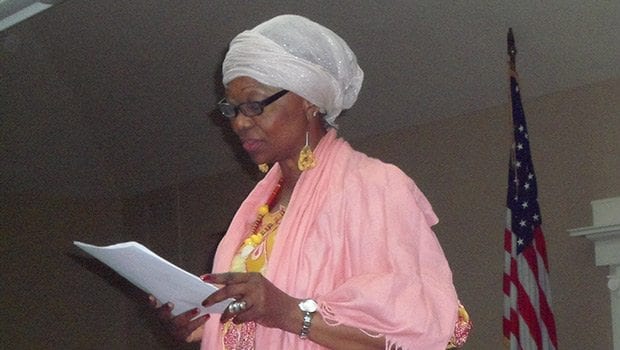
May 27 marked Congo Advocacy Day at the Massachusetts State House, led by the community organization Congo Action Now, to confront the illegal mineral trade that has perpetuated the war in Congo, which has killed more than 6 million people since 1996.
“Many might wonder what this has to do with Massachusetts,” said Francis Lomani member of advocacy group Generation Révolté.
The exploitation of the DR Congo’s natural resources is what Lomani says Americans should pay close attention to. Tin, tantalum, tungsten and coltan are minerals used in cell phones, laptops, and other electronic devices, and trade in these resources has sustained the deadly conflict. Lomani, who emigrated from Congo in 2007, says he could remember the atrocities that tore the Congo apart.
“This is a tough barrier. We want to get state representatives’ attention. It might not be a top priority, but we will keep pushing,” he said.
The purpose of Congo Advocacy Day was to encourage the passing of the H.2898 bill or “An Act Relative to Congo Conflict Materials.” It would prohibit the Commonwealth of Massachusetts from contracting with companies that do not comply with federal law mandating certification of minerals from the Congo.
The H.2898 bill was spear-headed by then-Representative Martin J. Walsh to encourage the use of conflict-free minerals. It’s now assigned to the Senate Committee on Ways and Means.
Two dozen organizations and state representatives have stood behind the bill, including Rep. Ruth B. Balser of Newton. She said she was deeply moved by the presentation Congo Action Now gave to the Women’s Legislative Caucus on the violence in the country and has since partnered with the organization to help move the bill forward.
“The legislative process takes time, but I believe they will have a great support base,” said Balser.
Congo Action Now Chairwomen Pat Aron said speaking to representatives could help them realize the economic and social impact of the bill.
“We would like this bill to pass so America won’t be complacent with human rights violations and companies can have more accountability for their actions,” Aron said.
Conflicts over Congo’s mineral wealth have attracted multiple armed groups from bordering countries such as Rwanda, Burundi and Uganda. Mass rape has been used as an intimidation strategy in securing control of trade and mines.
According to the 2011 study in the American Journal of Public Health, approximately 1,150 women are raped daily in the DR Congo, which is close to 400,000 a year. Former Secretary of State Hillary Clinton described it to be “truly one of mankind’s greatest atrocities.”
“It’s certainly a dangerous place to be a woman,” said Jeanne Kasongo L. Ngondo, president of the Shalupe Foundation. “This is femicide … genital mutilation. These men go after girls to destroy their reproductive system,” she said.
The Shalupe Foundation assists victimized and war-displaced women and children in DR Congo, and Ngondo said what she has seen through her work gives her every reason to speak out against the “shameless” acts of terror.
“In Congo there are so many concerns, where to begin I don’t know,” said Ngondo.
Bostonians in support of the cause divided into groups to meet with legislators and their aides. The event transitioned to a stand-out in front of the State House
Ngondo said she is confident the legislation will pass.
“It’s time to put an end to this war,” she commented.






